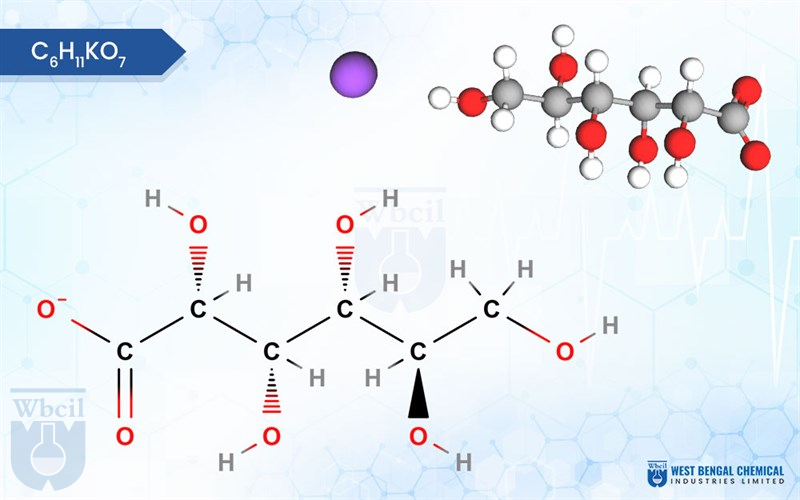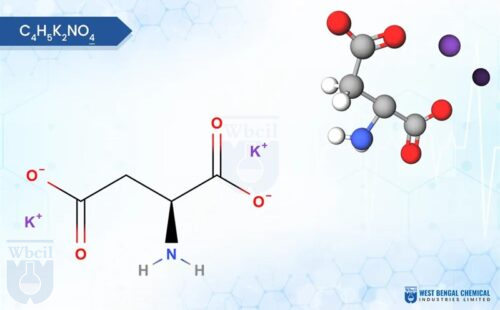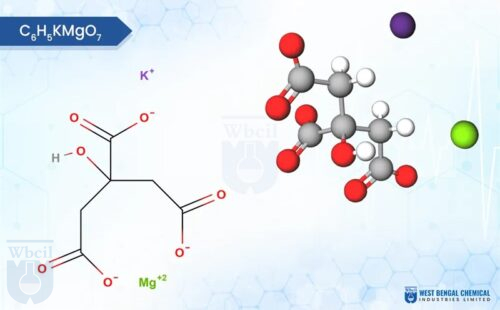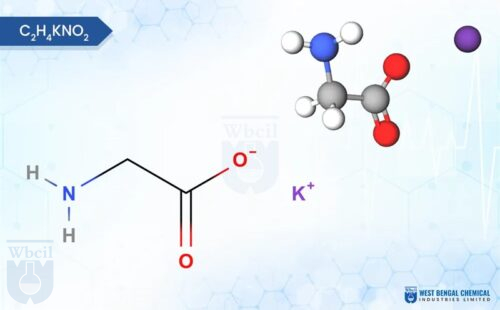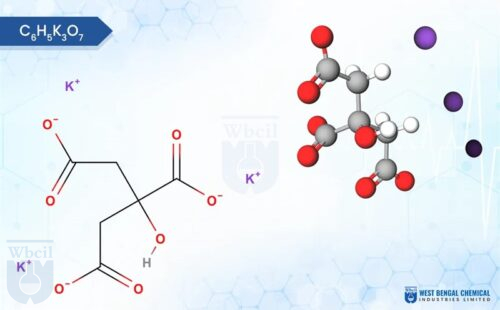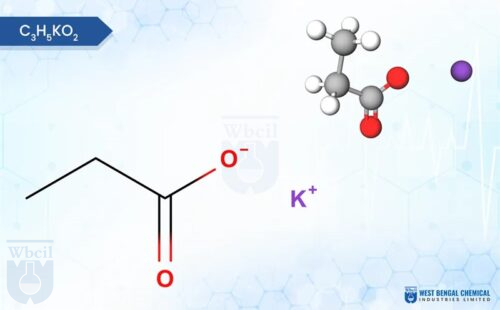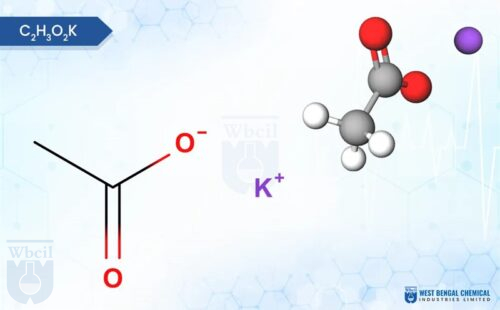-
Product Name:
Potassium Gluconate
-
Molecular Formula:
C6H11KO7
-
Molecular Weight:
234.25 g/mol
-
CAS No.:
299-27-4
-
HSN Code:
29181690
-
CID Code:
16760467
-
Shelf Life:
3 years - 20°C powder
-
ATC Code (WHO)
A12BA05
-
DrugBank ID
DB13620
-
ChemSpider ID
8931
-
UNII No.
12H3K5QKN9
- USP
- IUPAC Names
- Synonyms
USP of Potassium Gluconate
- Highly bioavailable
- Gentle on the stomach
- Supports heart health
- Prevents muscle cramps
- Maintains bone health
- Supports neurological function
- Regulates fluid balance
IUPAC Names of Potassium Gluconate
Potassium (2R,3S,4R,5R)-2,3,4,5,6-pentahydroxyhexanoate
Synonyms of Potassium Gluconate
- potassium gluconate
- 299-27-4
- Potassium D-gluconate
- D-Gluconic acid, monopotassium salt
- Gluconic acid potassium salt
- D-Gluconic acid potassium salt
- potassium (2R,3S,4R,5R)-2,3,4,5,6-pentahydroxyhexanoate
- Monopotassium D-gluconate
- D-Gluconic acid, potassium salt
- 12H3K5QKN9
- Kalium Gluconate
- 2,3,4,5,6-Pentahydroxycaproic acid potassium salt
- potassium;(2R,3S,4R,5R)-2,3,4,5,6-pentahydroxyhexanoate
- PotassiumD-gluconate
- Gluconic acid, monopotassium salt
- UNII-12H3K5QKN9
- C6H11KO7
- Potassium gluconate
- Gluconic acid, monopotassium salt, D-
- D-Gluconic acid, potassium salt (1:?)

Description of Potassium Gluconate
Potassium gluconate, a white crystalline powder, is a salt derived from gluconic acid and potassium. It exhibits a slightly bitter taste and is odorless. Its hygroscopic nature, meaning it readily absorbs moisture from the air, can lead to caking or clumping if not stored properly. Due to its high solubility in water, potassium gluconate is often used as a potassium supplement in pharmaceutical formulations.
Additionally, it finds applications in the food industry as a flavor enhancer and acidity regulator. Its gentle action on the digestive system makes it a preferred choice for those sensitive to traditional potassium chloride supplements. As a leading API manufacturer, WBCIL prioritizes strict CGMP and ISO quality control measures throughout the production process. The prolonged experience from 1962 ensures consistent potency, purity, and safety in every dose of WBCIL’s Potassium gluconate.
Application of Potassium Gluconate
Potassium Gluconate Uses in Pharmaceutical Industry:
- Treatment of Hypokalemia: In the pharmaceutical sector, potassium gluconate is used to treat or prevent hypokalemia (low potassium levels), which can result from certain medications, illnesses, or inadequate dietary intake. Its high bioavailability ensures that potassium levels are quickly replenished, making it an effective therapeutic option.
- Cardiovascular Support: Potassium gluconate plays a key role in regulating heart function by maintaining proper electrolyte balance. It is often prescribed in medications or supplements to support heart health, particularly for patients at risk of hypertension or heart arrhythmias.
- Neurological Function: In addition to heart health, potassium gluconate supports nerve function by aiding in the transmission of nerve impulses. This makes it an important component of treatments targeting neurological conditions that affect nerve signaling.
Potassium Gluconate in Nutraceutical and Dietary Supplement Industry:
- Potassium Supplementation: Potassium gluconate is commonly used in dietary supplements due to its high bioavailability, meaning the body can easily absorb and utilize it. It is a preferred form of potassium for individuals who need to maintain healthy potassium levels to support muscle function, heart health, and fluid balance.
- Gentle on Digestion: One of the key benefits of potassium gluconate in supplements is its gentleness on the stomach, making it suitable for individuals with sensitive digestive systems or those who experience gastrointestinal discomfort with other forms of potassium.
- Muscle Health and Cramps Prevention: Potassium gluconate is often included in supplements aimed at preventing muscle cramps, particularly for athletes, physically active individuals, or those with conditions that lead to electrolyte imbalances. It helps regulate muscle contractions and nerve signals, preventing cramping and spasms.

